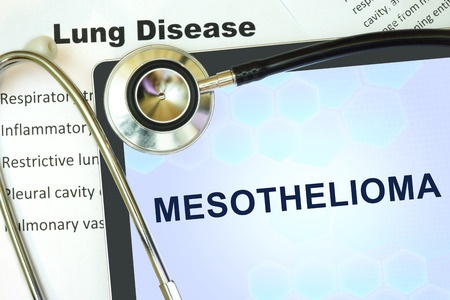Mesothelioma Lawsuit

Mesothelioma is a rare but aggressive cancer that attacks the lining of the lungs, abdomen or heart. This potentially deadly disease is almost always the result of asbestos exposure. Mesothelioma victims may be entitled to compensation from the companies and entities responsible for their pain and suffering.
Filing a Mesothelioma Lawsuit May Help You and Your Family
Filing a mesothelioma lawsuit can help you access financial compensation to cover medical bills, lost wages and other damages related to the disease. Families of mesothelioma victims may also be able to obtain compensation for their loved one’s wrongful death. If you would like to learn more about the legal options available to those harmed by asbestos, please contact the nationwide law firm of Bernstein Liebhard LLP by calling (888) 994-5118.
What is Mesothelioma?
There are three types of mesothelioma:
- Pleural mesothelioma: Affects the pleura, or lining of the lungs. This is the most common form of the disease, and accounts for roughly 70% of cases.
- Peritoneal mesothelioma: Occurs in the lining of the abdominal cavity, known as the peritoneum.
- Pericardial mesothelioma: Originates in the pericardium, which lines the heart.
Mesothelioma Symptoms
Mesothelioma rarely causes symptoms in its early stages. It’s also not unusual for patients to experience symptoms for several months before their diagnosis, as they often mimic other problems. Some of the most common signs and symptoms of mesothelioma include:
- Chest wall pain
- Pleural effusion (fluid surrounding the lungs)
- Shortness of breath
- Fatigue
- Dry cough
- Abdominal pain
- Abnormal buildup of fluid in the abdomen
- Abdominal mass
- Unintended weight loss
Asbestos and Mesothelioma
Exposure to asbestos is by far the leading cause of mesothelioma. A naturally-occurring silicate mineral, asbestos possesses a natural ability to resist heat, flame, electricity and corrosion. These properties led manufacturers to include asbestos in thousands of products, and for nearly a century the material was commonly used in construction, shipbuilding and numerous other industries.
While evidence of asbestos dangers began to emerge in the 1920s, it wasn’t until the 1960s that the first scientific studies linking asbestos to mesothelioma were published. By the 1980s, the safety concerns prompted by this research caused a drastic decline in the use of asbestos.
Asbestos is now considered a known human carcinogen. In March 2009, the International Agency for Research on Cancer reconfirmed that asbestos exposure is the leading cause for mesothelioma and all forms of asbestos cause the disease
Mesothelioma Treatment
The standard treatments for mesothelioma include:
Surgery: Surgery for mesothelioma may be curative or palliative. Some common procedures include:
- Pleurectomy: Removal of the section the pleura that contains the mesothelioma.
- Extrapleural pneumonectomy: Removal of an entire lung, part of the lining of the chest, the diaphragm and sometimes the lining of the heart.
- Cytoreductive surgery: Removal of as much cancerous growth as possible in order to extend survival.
Chemotherapy: The use of oral or intravenous medications to kill mesothelioma cancer cells and prolong survival. An oncologist may prescribe neoadjuvant therapy, in which drugs are administered prior to surgery to shrink tumors and decrease the chances that cancer will spread. Adjuvant therapy is administered after surgery in order to kill any cancer cells left behind and delay or prevent their spread. Common chemotherapy drugs used to treat mesothelioma include:
- Pemetrexed (Alimta®)
- Cisplatin
- Carboplatin
- Gemcitabine (Gemzar®)
- Methotrexate
- Vinorelbine
- Mitomycin
- Doxorubicin (Adriamycin®)
Radiation Therapy: Radiation therapy may be prescribed after surgery to kill any remaining malignant cells. It may also be administered as a palliative measure to relieve shortness of breath, pain, bleeding, trouble swallowing, and other symptoms. Options for radiation treatment include:
- External beam radiation therapy (EBRT): Uses x-rays from a machine outside the body to kill cancer cells. It is the most common form of radiation therapy for mesothelioma.
- Brachytherapy: A radiation source is put inside the body, in or near the cancer. This option is rarely used for mesothelioma.
Compensation for Mesothelioma Victims
Mesothelioma lawsuits began to mount against asbestos manufacturers in the 1970s, and by 2002, some 730,000 Americans had sought compensation for this asbestos-related illness. Bankrupt asbestos companies were required to establish mesothelioma trust funds in order to ensure that workers stricken with the disease would be able to obtain fair compensation for their injuries. Veterans who were exposed to asbestos while serving in a branch of the military may also file mesothelioma claims through the U.S. Department of Veterans Affairs.
Were You or a Loved Once Diagnosed With Mesothelioma? Contact an Attorney Today.
There is hope for the victims of asbestos exposure. Filing a mesothelioma lawsuit can ensure that you and your family receive fair compensation for your medical care, as well as any other physical, financial and emotional damages related to your illness. To learn more about the legal help available to you, please call (888) 994-5118 to discuss your claim with a member of our legal team.
- American Cancer Society (2015) “What is Malignant Mesothelioma? http://www.cancer.org/cancer/malignantmesothelioma/detailedguide/malignant-mesothelioma-malignant-mesothelioma
- American Cancer Society (2015) “What are the Key Statistics About Malignant Mesothelioma” http://www.cancer.org/cancer/malignantmesothelioma/detailedguide/malignant-mesothelioma-key-statistics
- American Cancer Society (2015) “What are the Sign and Symptoms of Malignant Mesothelioma” http://www.cancer.org/cancer/malignantmesothelioma/detailedguide/malignant-mesothelioma-signs-symptoms
- IARC “Asbestos” http://monographs.iarc.fr/ENG/Monographs/vol100C/mono100C-11.pdf
- American Cancer Society (2015) “Treating Malignant Mesothelioma” http://www.cancer.org/Cancer/MalignantMesothelioma/DetailedGuide/malignant-mesothelioma-treating-general-info
- Rand (2010) “Asbestos bankruptcy trusts: An overview of trust structure an activity with detailed reports on the largest trusts” http://www.rand.org/content/dam/rand/pubs/technical_reports/2010/RAND_TR872.pdf
Get the latest news and litigation updates about this case by following us on Facebook. Click the "Like" button below.
Follow Us


